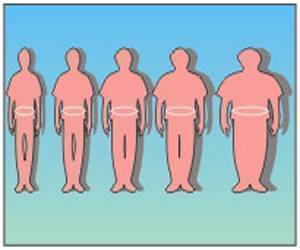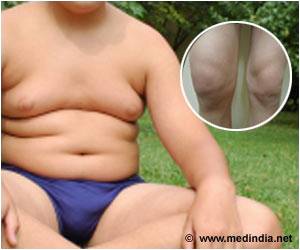Highlights
- Overweight women who believe negative messages about their bodies are at higher risk for diabetes and heart disease, finds a new study.
- Weight bias and stigma can negatively affect physical and mental health.
- Negative messages can make a person avoid exercise and consume more calories to cope with stress.
Lead author Rebecca Pearl, PhD, an assistant professor of Psychology in Psychiatry and colleagues from Penn's Center for Weight and Eating Disorders, said, "There is a common misconception that stigma might help motivate individuals with obesity to lose weight and improve their health.”
"We are finding it has quite the opposite effect. When people feel shamed because of their weight, they are more likely to avoid exercise and consume more calories to cope with this stress. In this study, we identified a significant relationship between the internalization of weight bias and having a diagnosis of metabolic syndrome, which is a marker of poor health."
Body Shaming Linked to Poor Health Outcomes
The research team examined 159 obese adults who were enrolled in a larger clinical trial testing the effects of weight loss medication. The majority of the participants were African American women. The participants completed baseline questionnaires measuring depression and weight bias internalization before any intervention was given.
Weight bias internalization occurs when people apply negative weight stereotypes to themselves, such as believing they are lazy, unattractive and devalue themselves because of their weight.
No relationship was observed between weight bias internalization and metabolic syndrome when controlling for participant demographics, such as age, gender, and race. However, when patients were stratified into two groups, "high" and "low" levels of weight bias internalization, those with high internalization were three times more likely to have metabolic syndrome, and six times more likely to have high triglycerides as compared to participants with low internalization.
"Providers can play a critical role in decreasing this internalization by treating patients with respect, discussing weight with sensitivity and without judgment, and giving support and encouragement to patients who struggle with weight management - behaviors everyone should display when interacting with people with obesity."
Previous studies have shown that exposure to weight bias and stigma can have a negative impact on mental and physical health. Weight bias and stigma can lead to a physiological stress response such as increased inflammation and cortisol levels and can escalate unhealthy behaviors such as overeating and avoiding physical activity.
Additional research, specifically larger, longer-term studies, are needed to explore further the possible biological responses and behaviors that may explain why individuals with obesity who internalize weight bias might be at greater risk for cardio-metabolic disease.
"Disparagement of others due to their weight and messages that perpetuate blame and shame, if internalized, can cause harm to the physical and mental health of individuals with obesity," added Pearl. "As health care practitioners, we can help challenge negative, internalized stereotypes by educating patients about the complex biological and environmental factors that contribute to obesity, while providing concrete strategies to help patients manage their weight and improve their health."
Reference:
- Rebecca L. Pearl, Thomas A. Wadden, Christina M. Hopkins, Jena A. Shaw, Matthew R. Hayes, Zayna M. Bakizada, Nasreen Alfaris, Ariana M. Chao, Emilie Pinkasavage, Robert I. Berkowitz, Naji Alamuddin. Association between weight bias internalization and metabolic syndrome among treatment-seeking individuals with obesity. Obesity, (2017) DOI: 10.1002/oby.21716















